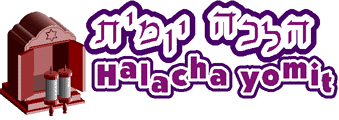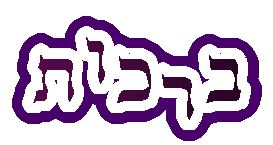- tefilah- Shmone Esrei l kashrut l tevilat keilim l brachot l lashon hara l matza guide
|
|
 |
|
 |
|
 |
- Questions on this page:
- Should I make a bracha on gasoline if I like the smell?
- Why can't I look at a rainbow for longer then it takes to say the bracha?
- Which fruit should I make the bracha on?
- What do I do if I said the bracha on thunder by mistake?
![]()
- Question: We learned about making a bracha on pleasant odors. I enjoy the smell of gasoline, should I say a bracha before smelling it?
Answer: The first thing that I did when I received this question,
is send it to a doctor. I'd like to share his statement regarding inhaling
the fumes of gasoline with you. It was given by Dr. Doron Spierer, formerly of Bala
Cynwyd, Pennsylvania who now resides in Jerusalem:
"Gasoline is dangerous to smell for a bunch of reasons: It is volatile and flammable, meaning that the fumes insidiously seep into your skin, hair and clothes and can easily catch fire from something as simple as a nearby cigarette. The resultant fire would cause horrible, painful burns before it kills the victim.
These fumes are carcinogenic and cause cancers of the mouth, neck and associated structures, leading to some of the most disfiguring surgeries I've seen.
Although American gasoline no longer contains lead, the stuff is still full of other chemicals that are toxic to your brain. This causes lifetime diminished intelligence in an otherwise normally growing and developing child or adolescent."
Based upon this response, it is clear that according to halacha one is not permitted to purposely inhale gasoline. (Smelling it in passing while filling up a gas tank etc of course can't be avoided, yet should obviously be kept to a minimum).
(a) A bracha should not be made on items which pose a clear danger to a persons' health, because the item becomes an *issur* (as far as inhaling it goes).
(b) In addition, the gasoline in a gas station is not placed there to provide an odor.
Sources:This halacha (not to make a bracha on the smell of gasoline) is brought down in the book: "Vzot Habracha" page 178 (fifth edition), although for different reasons then mentioned.

